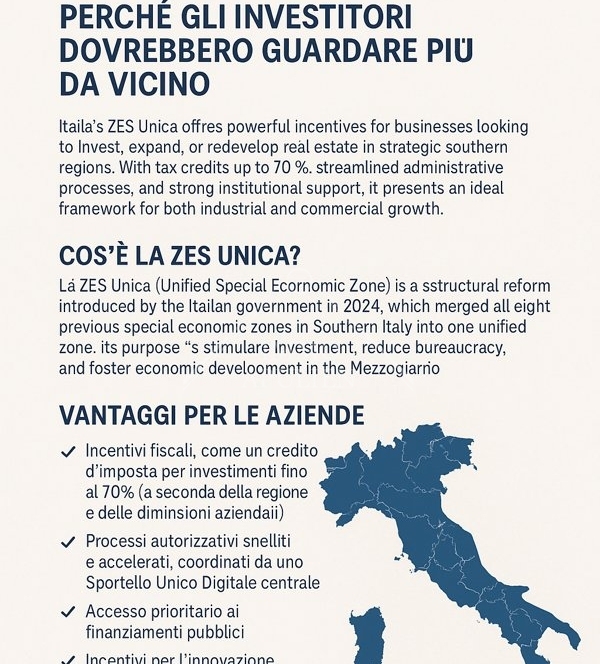Real Estate Auctions in Apulia: Opportunities, Risks, and Valuable Tips for Interested Buyers
I decided to write about this topic now because I am currently observing two by example real estate auctions in Apulia, southern Italy. These auctions involve larger properties offered by various agencies on the market. I have noticed that prices can vary considerably between different agencies and that not all of them possess in-depth knowledge of the regional market. Make we wonder how they wish to assist as best? This can lead to uncertainties and potential risks for buyers. That’s why I want to share some important insights to help you approach real estate auctions in Apulia more confidently and make well-informed decisions.
Real estate auctions can present attractive opportunities, as many properties are sold below their usual market value. Especially in Apulia, one often finds historical farmhouses, masserie, and larger residential properties with considerable potential. With a thoughtful renovation strategy or creative investment approach, these properties can become unique personal residences or profitable investments.
However, these auctions also come with significant risks. Many properties being auctioned originate from foreclosures or insolvency proceedings. Therefore, it is essential to carry out due diligence before placing a bid. This means a thorough review of all relevant documents — including land registry excerpts, encumbrances, easements, and tenancy agreements. Without proper due diligence, unforeseen costs or legal complications can quickly arise.
One particularly important aspect is that auction properties in Italy are sold strictly “as seen” (vendita nello stato di fatto e di diritto in cui si trova). This means the buyer accepts the property in its current condition — including all structural issues, existing defects, and any legal or technical encumbrances. There is no possibility to claim hidden defects or seek compensation after the purchase. As a result, due diligence should also include a technical inspection and a legal reviewby professionals to avoid unexpected renovation costs or disputes after acquiring the property.
The physical condition of many auction properties in Apulia deserves special attention. Years of vacancy or lack of maintenance can lead to substantial renovation needs. Buyers should anticipate these costs in their financial planning to avoid unpleasant surprises later. An on-site inspection and assessment by a local technical expert are highly recommended.
Another key point is financing. Unlike traditional sales, auctions usually require proof of funds or a pre-arranged loan before bidding. Once a bid is accepted, a deposit is immediately due (usually 10% of the purchase price), and the remaining balance must be paid within a short timeframe. Failure to meet these terms can result in the loss of the deposit or even legal action. Therefore, buyers should ensure financing is fully in place before participating in the auction.
Selecting the right intermediary is also crucial. While some sellers and agents have extensive experience in Apulia and maintain reliable local networks, others may lack genuine knowledge of the regional market despite presenting themselves as specialists. Such sellers may offer only limited guidance, leaving buyers to navigate potential risks on their own. It is therefore advisable to choose partners with verifiable expertise and a solid track record in Apulia.
In addition, buyers should not rely solely on publicly available information but consult a lawyer or notary who is familiar with Italian real estate law and the auction process. Professional guidance helps clarify legal and tax-related issues and ensures a smooth transaction.
It is also essential to develop a realistic budget that accounts not only for the final auction price but also for renovation costs, taxes, and transaction fees. A well-prepared financial plan can protect buyers from unexpected financial strain.
In summary, real estate auctions in Apulia offer compelling opportunities for both investors and private buyers. They provide access to unique properties that might otherwise be difficult to find on the traditional market. However, a cautious approach, thorough due diligence, and professional guidance are essential to minimize risks and secure a successful outcome. My team and I are happy to assist you with any questions you may have. Above all, I hope this article provides a solid foundation of information so that you can navigate the Apulian real estate auction market with confidence.
Do’s and Don’ts for Real Estate Auctions
Do’s
✅ Conduct thorough due diligence: Review all official documents, including land registry excerpts, appraisals, encumbrances, easements, and tenancy agreements.
✅ Always remember that auctioned properties in Italy are sold strictly “as seen,” so inspect the property in person and consult technical experts.
✅ Consult a lawyer or notary familiar with Italian real estate law and the local market in Apulia.
✅ Arrange financing in advance and be prepared to pay the deposit and remaining balance within the required deadlines.
✅ Develop a realistic budget that includes the auction price, renovation costs, taxes, and transaction fees.
✅ Work with reliable partners who have proven experience and in-depth knowledge of the Apulian market.
Don’ts
❌ Rely solely on online listings or photos without personally inspecting the property.
❌ Underestimate the complexity of Italian auction processes or assume they function the same way as in other countries.
❌ Ignore existing encumbrances or assume they will automatically disappear after purchase.
❌ Expect every auction property to be a bargain; some may have hidden costs or legal issues that outweigh the initial price advantage.
❌ Enter an auction without securing financing; failing to meet payment deadlines can result in losing the deposit or facing legal consequences.
❌ Choose intermediaries who present themselves as experts but cannot demonstrate a reliable track record in Apulia.
Financing — Buyers must ensure they have financing arranged before bidding, as auctions typically require proof of funds or a deposit. Failure to meet the payment terms after winning the auction can lead to loss of the deposit or even legal action.
Key Considerations for Buyers
- Legal Framework and Transparency
Properties are sold through regulated court auctions, ensuring a structured bidding process. Each auction is accompanied by a perizia—a court-appointed appraisal report that outlines the property’s legal status, occupancy, and condition. Prospective buyers should review this document thoroughly to identify any issues that could impact the purchase. - Condition of Properties
Many auctioned properties require renovation or restoration, and inspections can be limited or, in some cases, not permitted at all before the sale. Buyers should be prepared to factor in potential renovation costs and delays. - Occupancy and Eviction
Some properties may still be occupied by former owners or tenants. Buyers acquire responsibility for any necessary eviction proceedings, which can be time-consuming and may involve additional legal expenses. - Financial Requirements and Deadlines
Winning bidders must typically pay a deposit (around 10% of the minimum bid) at the time of the auction. The balance is usually due within a specified timeframe set by the court, often 60 to 90 days. Buyers should ensure that funds are available in advance, as financing post-auction can be challenging. - Potential Liabilities
While auction sales generally cancel prior mortgages or liens, some obligations, such as unpaid condominium fees or certain local taxes, may remain. A qualified legal professional can help clarify any residual liabilities.
Recommended Practices: Do’s and Don’ts
Do:
- Engage a local notary or lawyer with expertise in Italian property auctions to guide the process.
- Examine the perizia carefully to understand all legal and physical aspects of the property.
- Set a realistic budget that includes not only the purchase price but also renovation costs, taxes, legal fees, and potential eviction expenses.
- Attend at least one auction as an observer to familiarize yourself with the process and dynamics.
Don’t:
- Don’t place bids without fully understanding the property’s legal status or potential liabilities.
- Don’t assume all auction prices represent bargains; some reserve prices may be close to market value.
- Don’t overlook post-auction obligations, such as property registration and utility transfers.
- Don’t underestimate the complexities of evicting existing occupants, if applicable.
Also, from experience, I can say it’s very important to make sure all the mortgage issues are fully resolved. Many of the auctions involve more than one bank listed in the property register, so it’s crucial to carefully review and verify all terms and conditions.
I tried to complete this information a bit further, but it’s clear that this is a very complex topic. This should serve as a helpful guideline for you.


